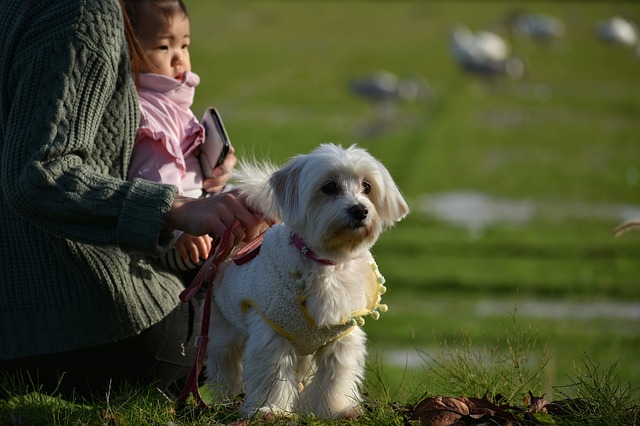If you’ve been a dog parent for some time now, you can confirm that all dogs crave for attention.
Whether it is barking, persistent pawing, or stealing something and running away with it, a dog will do everything to always get the owner’s attention.
Like human beings, dogs are social animals that thrive on close association and interaction with their loved ones.
Your dog perceives you as the most important person in the universe. He wants you to always interact with him and if you neglect him, he will scout for a way to get your attention.
So, if you suddenly give birth to a baby, your dog may become jealous.
And without a proper introduction, your pup is unlikely to welcome this little new member of the family who drains all the attention and time that was previously dedicated to him.
To ensure that things go as smoothly as possible for everyone, it is important to understand whether dogs really get jealous of babies, signs that your dog is jealous of your baby, and what you can do about it or how to prepare your pup for the arrival of your new bundle of joy.
So, Do Dogs Get Jealous Of Babies?
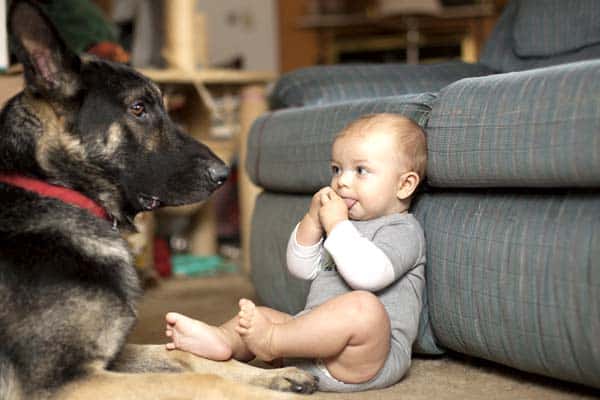
The short answer is: Yes, dogs can get jealous of babies!
While many dogs will get along with children, there are several reasons why introducing a new baby in your household may create jealousy issues with your canine companion.
To begin with, the moment you bring a new baby home, your pup is going to face an overwhelming number of novel sounds, sights, and smells.
Some of these may be upsetting to him, particularly if he has never had a chance to spend time with babies before.
You are also going to change your daily routines, including your pup’s schedule. This implies that your dog will get less time and attention.
And considering that dogs are capable of having strong emotions like us, it can be a difficult time for him.
Dogs are creatures of routine and often need to know that their care needs are met.
So, giving them less attention because of the new baby might make them feel as if some of these basic needs are in jeopardy.
Some dogs, especially those that get so attached to their owners, may even develop separation anxiety.
Another potential reason why your dog may get jealous of your baby is insecurity.
You are your dog’s best friend whom he depends on for most basic things in life, including his security and safety.
In case this safe situation is threatened because of the arrival of another member of the family, he is likely to get jealous.
He may assume that there will be no place for him in the new family home.
If your dog had been abused or experienced trauma in the past, he may also develop jealousy when you welcome a baby.
Probably, he took long to get used to integrating into his adopted family because he had to relearn to trust humans. The arrival of a new baby may ignite this past trauma.
Finally, a dog’s jealousy towards other pets and babies is scientifically-backed.
In a past study done by researchers at the University of California, San Diego, it was found that dogs exhibit jealous behaviors when their parents showed affection to stuffed, robotic dogs.
The dogs pushed and snapped the stuffed dogs and some even tried to get between the toys and their parents.
Signs Dog Is Jealous Of Baby
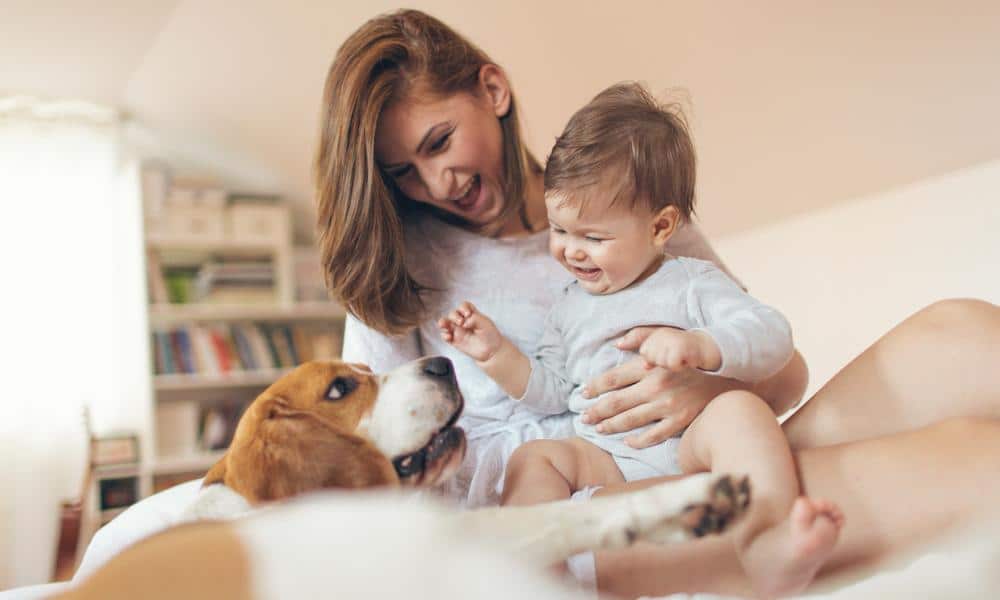
Dogs are very intelligent. They can sense any change in your household and reciprocate depending on the situation.
The presence of a baby can be interpreted as a threat. A baby’s cry may also upset your dog if he is not used to loud noises.
So, how can you tell if a dog is jealous of the baby’s presence in your home?
Well, here are the top signs your dog is jealous of the baby:
1. Aggression
If your dog barks, hisses, or shows his teeth to the baby, it is a clear sign that he is jealous of the baby.
He may even nibble you when you are holding the baby to get your attention.
2. Pushy Behaviors
If your dog tries to force himself on your lap when you are carrying or holding the baby, it is also a sign that he is jealous.
He is probably demanding your attention and cannot stomach the idea of the baby benefiting from all the wonderful things he loves about you.
3. Giving You More Attention
If your dog begins to sit close to you, lick your face, or jump on you, especially when you are holding the baby, it is a surefire sign that he jealous and yearning for your attention.
He expects you to reciprocate with extra attention towards him.
4. Pulling Off a Trick
A dog may also perform the tricks that he usually does like rolling, sitting on his hind legs, playing dead, etc to get your attention.
Your dog knows very well that you are often impressed with such tricks because you always reward him after performing them.
If he is jealous of the baby and wants to get your attention, don’t be surprised when he pulls off some of the hardest tricks.
5. Misbehaving
A jealous dog will do anything to get your attention—even if it means causing mischief.
He doesn’t care about the reaction that he gets provided that he gets one!
So, if your pup begins jumping on the furniture, chewing things around him, racing around the house, or jumping up and down, you should know that he is jealous of the new member of the family and he’s trying to get your attention.
6. Over-grooming
Canine experts believe that self-care or grooming is a way for dogs to deal with insecurity and feelings of unwantedness, especially if their owners are not giving enough love and affection.
So, if you notice your dog cleaning or licking himself far more than usual, it can a sign that he is feeling stressed—another indirect response that can be linked to jealousy.
7. Accidents
If your pup is potty-trained but suddenly starts having accidents indoors, it could be a sign that he is jealous or distressed about something.
Since your dog can’t communicate verbally, doing things that you have trained him to avoid like going to the bathroom indoors can be a way of telling you that they are upset about something.
Related Post: How To Potty Train a Puppy to Go Outside in 7 Easy Steps
8. Leaving
Jealousy and insecurity go hand-in-hand.
If your four-legged friend feels that he is being neglected and jealous that his spot in the family is being taken by the new baby, he may not have the heart to fight it.
He may express his frustration by just leaving the room.
9. Depression
Depression could also be a sign of jealousy.
When your dog cannot get the attention that he needs, he might withdraw himself.
He may lose appetite, become less interested in his toys, or show lethargic symptoms.
10. Change Of Eating Habits
Dogs are also known to change their eating habits in response to changes in the homes they live in.
So, if you notice that your dog is suddenly overeating or undereating, especially after the arrival of the baby, you can conclude that he is jealous.
PRO TIP:
Not all undesirable behaviors translate to jealousy.
In some instances, a dog just doesn’t understand how to behave around babies.
For instance, probably he is just afraid or anxious about the baby’s crying, screaming, and other forms of stress that can result from a newborn.
A dog may also have his own understanding of handling or dealing with infants.
He may growl, snarl, and bark at your baby because that’s what he can remember his own mother doing to his littermates.
Tips for Creating a Peaceable Kingdom
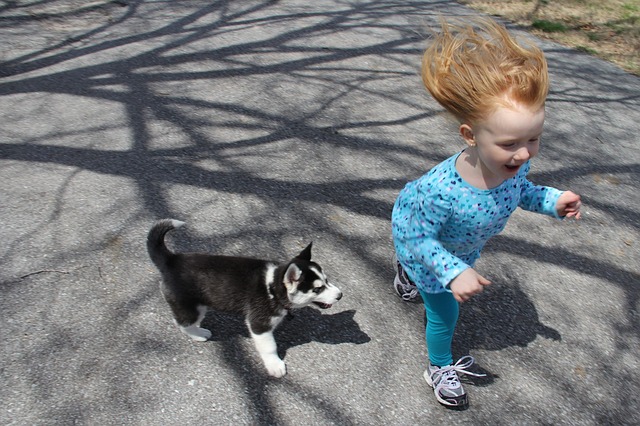
For your dog to accept the baby as a new member of the family, he needs time to adjust.
Accordingly, proper steps should be taken to introduce the dog to the baby and to ensure that full socialization is realized.
Here are some of the tips you can leverage to keep the dog and baby happy together:
Prepare Your Dog for the Arrival of the Baby
Dogs thrive on predictability and routine.
So, before you welcome a new baby in your family, consider taking the necessary precautions to avoid potential future conflicts:
- Bring baby’s items like blankets home so that the dog can familiarize himself with a baby’s scent.
- If you plan to move some furniture, do so before the baby’s arrival so that your dog gets used to one change at a time.
- Allow your dog to sniff around your baby’s room and look at his items/toys so that by the item the baby arrives, the dog won’t be curious about baby items
- If your dog loves to cuddle on a given sofa or sleep in a certain corner in the house, avoid putting baby’s items in such spots so that the dog doesn’t have a feeling that he is being displaced.
- Let your dog know what to expect by inviting a friend or relative with a baby for an afternoon chat. This way, you can have a better idea of how your dog will respond to the chaos that comes with a newborn. Alternatively, take the dog to parks so that he can get used to being around kids.
- Consider playing recordings of a baby’s cry when your house is quiet so that the dog can familiarize himself with such sounds.
Reduce the Amount of Attention You Give to the Dog before Baby’s Arrival
Once the baby arrives, you won’t have the luxury to play games with your dog or give the amount of attention that he deserves because you will be taking care of the baby.
So, before the arrival of the baby, encourage the dog to entertain himself and get used to lack of attention.
This way, your pup won’t feel distressed by the sudden change of affection and love towards him.
Help your Dog Associate the Newborn with Some of the Things he Likes
Another good strategy for ensuring harmony between the baby and the dog is to help your pet associate the baby with things he likes:
- Take a few used baby blankets and put them where he eats or sleeps.
- Consider allowing the dog to sniff the baby once in a while.
- If possible, ask a friend’s child to come and play with your pup so that he doesn’t feel neglected.
Keep Baby and Dog Toys Separate
Tussling over toys is a common issue that you will run into when a baby and a dog share a home.
The best thing to do to avoid such conflicts is to keep the toys separate.
If your pup grabs one of the baby’s items, take it away and immediately direct him to his own. When he cooperates and plays with his toys, reward him.
Consider rubbing some almond or coconut oil on your pup’s toys as well so that he associates the smell with his belongings.
This will also help him differentiate between his toys and baby items.
Allow Your Dog to Share the Attention
Allow your dog to spend time with you when you are tending to the baby. This way, he will realize that it is normal to share your attention with other members of the family.
It will also give you a chance to see his reactions whenever the baby creates chaos.
While tending to the baby with one hand, you can pet the dog with the other.
And when walking with your baby, consider walking the dog as well. Soon, your dog will automatically want to join you when he realizes that you are getting ready to walk with the baby.
But if you realize that your dog needs more attention, get him new toys to play with whenever you are busy.
The bottom line is: if the dog can associate baby time with some fun, he will become less jealous of the baby.
Never Leave Your Dog and the Baby Unsupervised
Even if the dog isn’t jealous of the baby, he may act unpredictably if the baby grabs or startles his peace with a noisy toy.
Although it is unusual for a dog to attack a baby, you don’t want to take any chances.
It is also important to be extra vigilant once the baby starts to move.
Things like the baby crawling to the dog’s bowl may make the dog uncomfortable and even trigger anger.
Consider putting your dog on a leash or flat collar. This way, you can easily control him, ensuring that everyone feels calm and relaxed while interacting.
And don’t allow the dog to chew baby’s toys or clothing as a precaution against sharing pathogens.
Always Discourage Any Sign of Jealousy
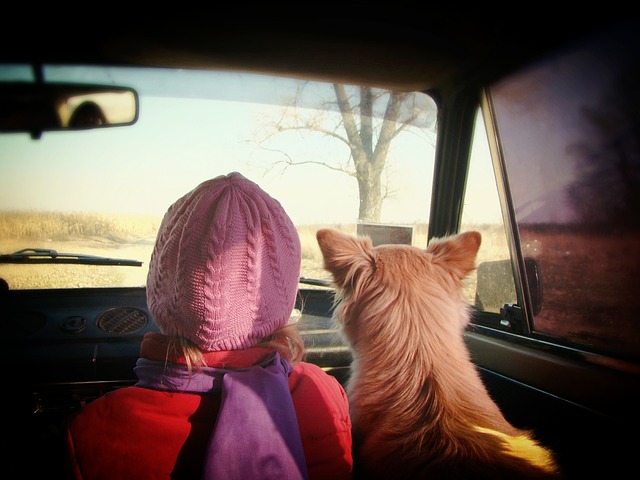
Discourage any sign of jealousy like barking towards the baby, being pushy, or hissing immediately you notice them.
Whenever the dog tries to misbehave, he must be called to order immediately.
Remember to reward him when he does the right thing to show him some love and appreciation.
This will reinforce good behavior and can go a long way in discouraging jealousy.
Avoid Punishing Your Dog
If your dog is reacting aggressively to the baby like barking, peeing over baby’s clothes or involved in other mischievous behaviors, you should understand that he is trying to tell you that he is not comfortable with the situation.
Don’t be tempted to use physically harsh punishment to correct him though. Instead, you can begin your plans for retraining.
If you haven’t worked on obedience training for long, it might be time to reinforce commands like “leave it”, “go to your crate”, “sit”, “settle”, “go out of a room”, etc.
This will help you polish up skills you need to manage the situation.
Seek Professional Help
If your dog’s jealous tendency is an ongoing issue, call a behavioral specialist to help you out.
Consider allowing your dog to spend some quality time with a professional pet sitter, especially during those new baby days.
If you haven’t had your pup trained professionally already, this might be the right time to enroll him in a nearby obedience school.
While going on walks with the dog and the baby can help with bonding between the two, sometimes your jealous dog might benefit from more space.
Give him the gift of individual attention by hiring a professional dog walker once in a while.
Last Resort: Find Your Companion a Boarding Facility
If you’ve implemented the tips we’ve highlighted above and sought out professional help but your dog is still constantly acting out, it might be time to get your dog another home.
This is can be a painful decision but remember that the safety of your child comes first.
It is also for the benefit of your furbaby who’s clearly unhappy with the current situation or changes in your home.
Conclusion
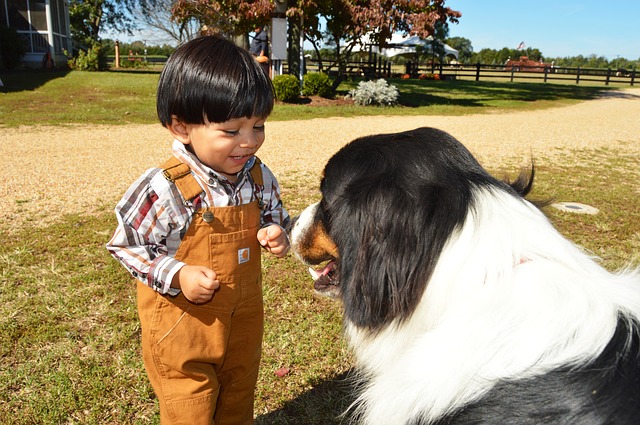
Dogs get jealous of babies? Yes, they do and hopefully, now you know when a dog is jealous of your baby.
But a change in the dog’s behavior because of the arrival of a new baby is not the end of the world.
You should understand that your dog simply wants some form of assurance that you still love and care for him even if there is someone new in your life.
We hope that the above highlighted tips will help you ensure peaceful co-existence between your dog and baby.
Just remember that helping your dog to get used to the baby won’t happen the same day.
From your dog’s perspective, he is simply protecting what’s his—and that’s something that cannot be easily changed.
So, patience, consistency, and positive reinforcement will be essential.
Create a plan of action (if possible, engage a professional) and stick with it.
Your hard work will pay off once your canine companion starts to change his behavior.
Related Posts:
Why is My Dog Trying to “Bury” My Baby?
Why Does My Dog Bite Me When Excited?
Why Is My Dog Aggressive Towards Me But Not My Husband?
Will My Dog Forgive Me for Hitting Him?
My Boyfriend’s Dog Is Ruining Our Relationship: What Should I Do?
As an Amazon Associate, we may receive a small commission from qualifying purchases but at no extra cost to you. Learn more. Amazon and the Amazon logo are trademarks of Amazon.com, Inc, or its affiliates.

